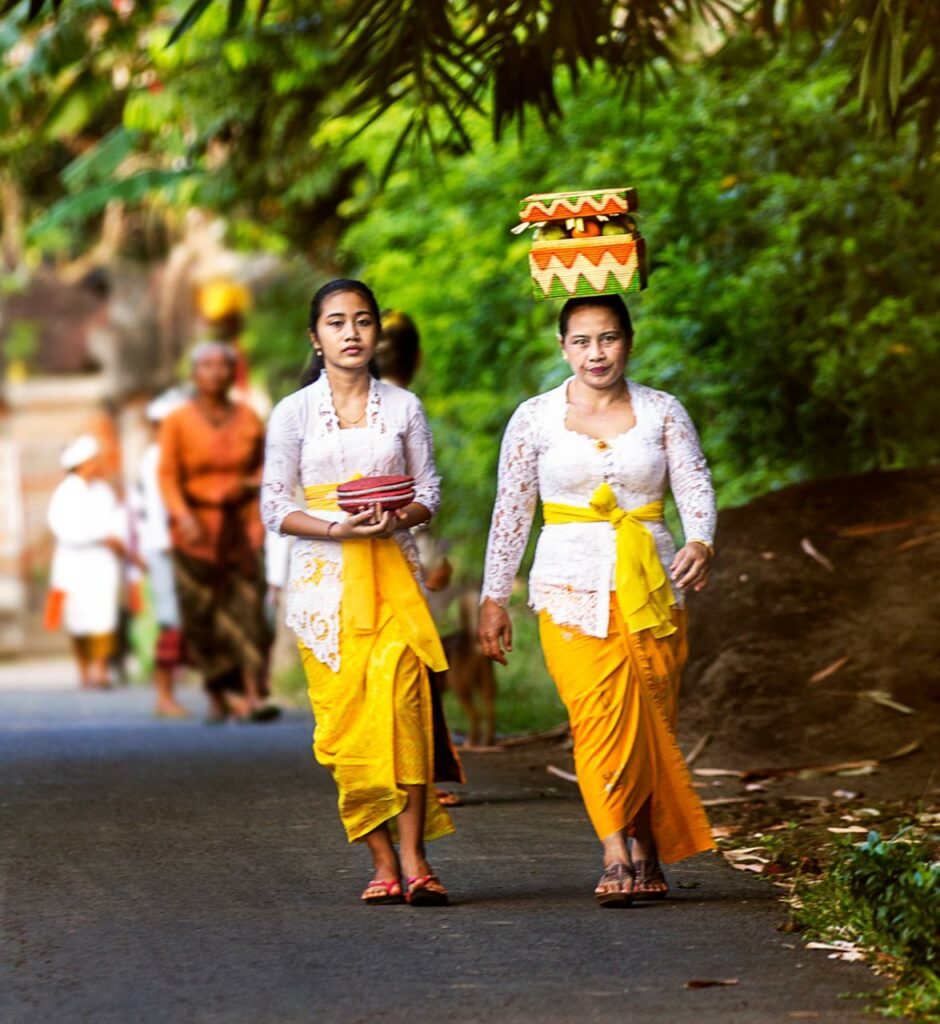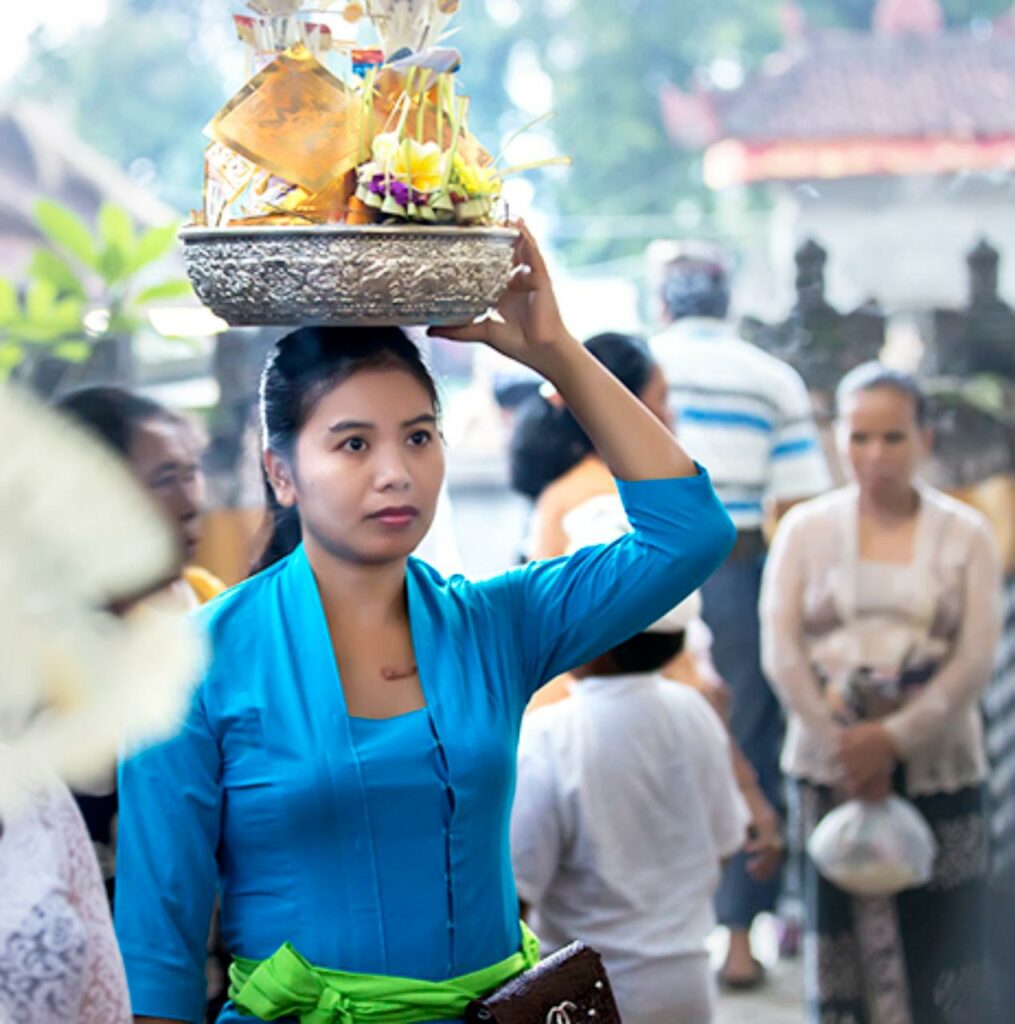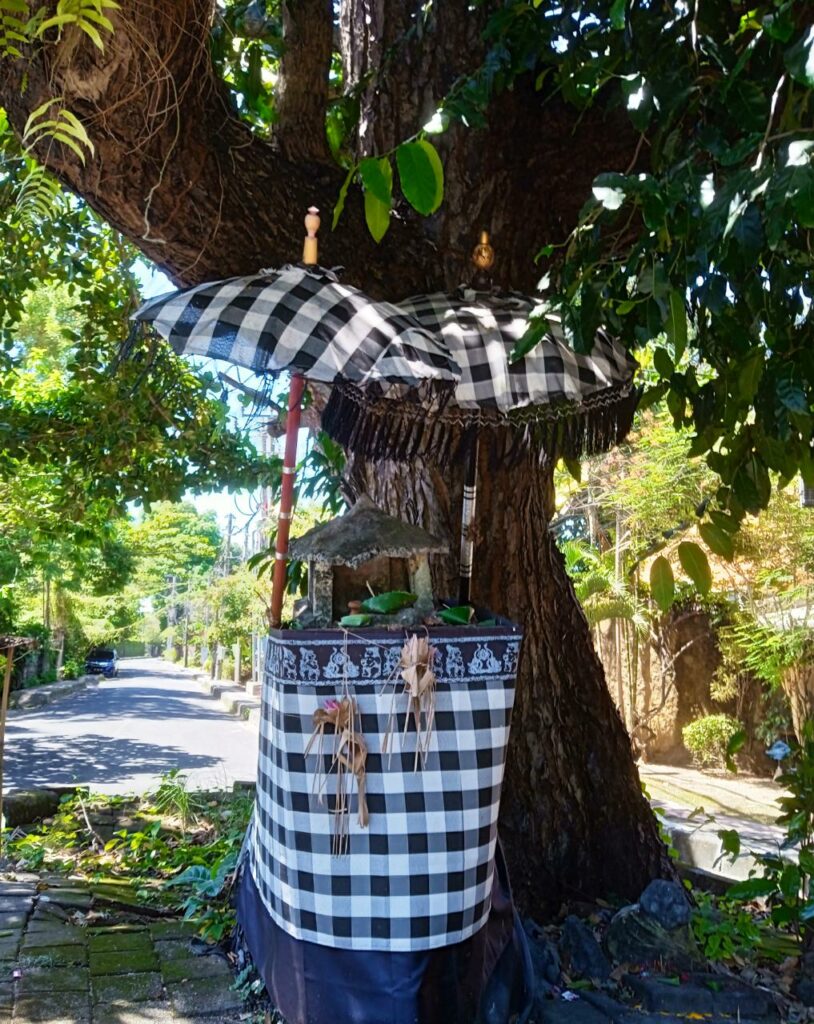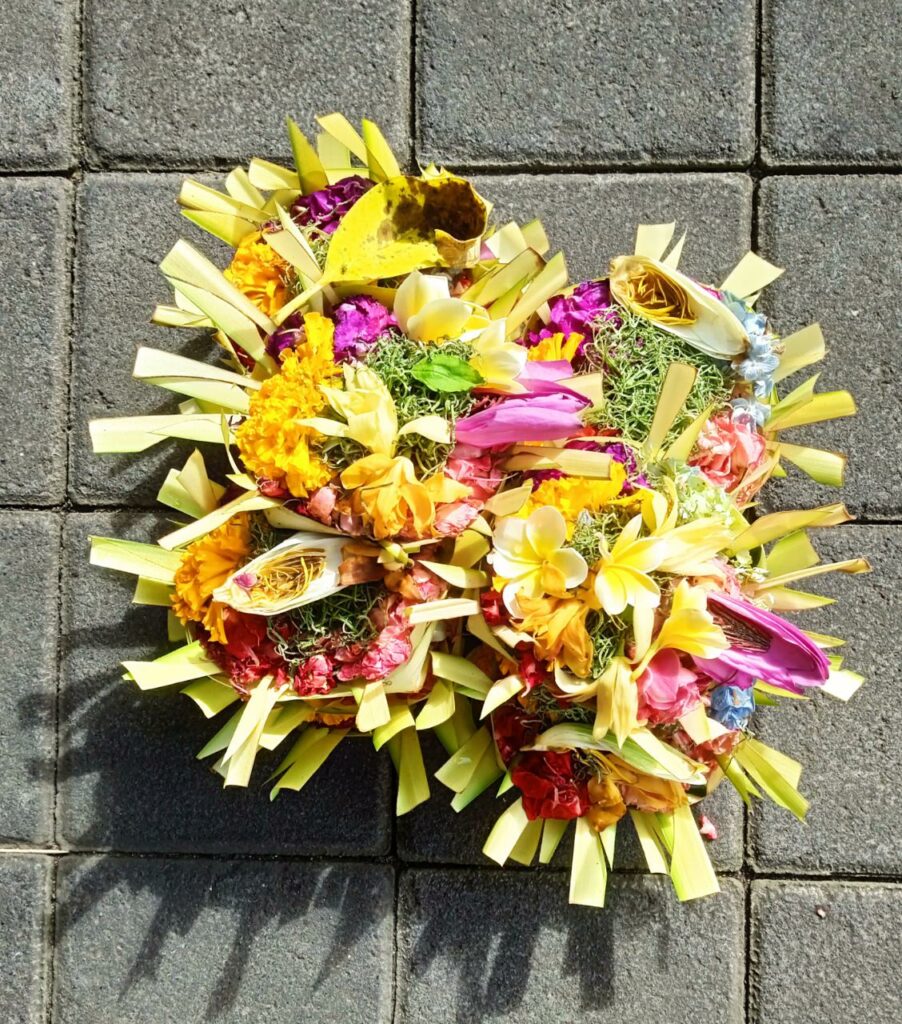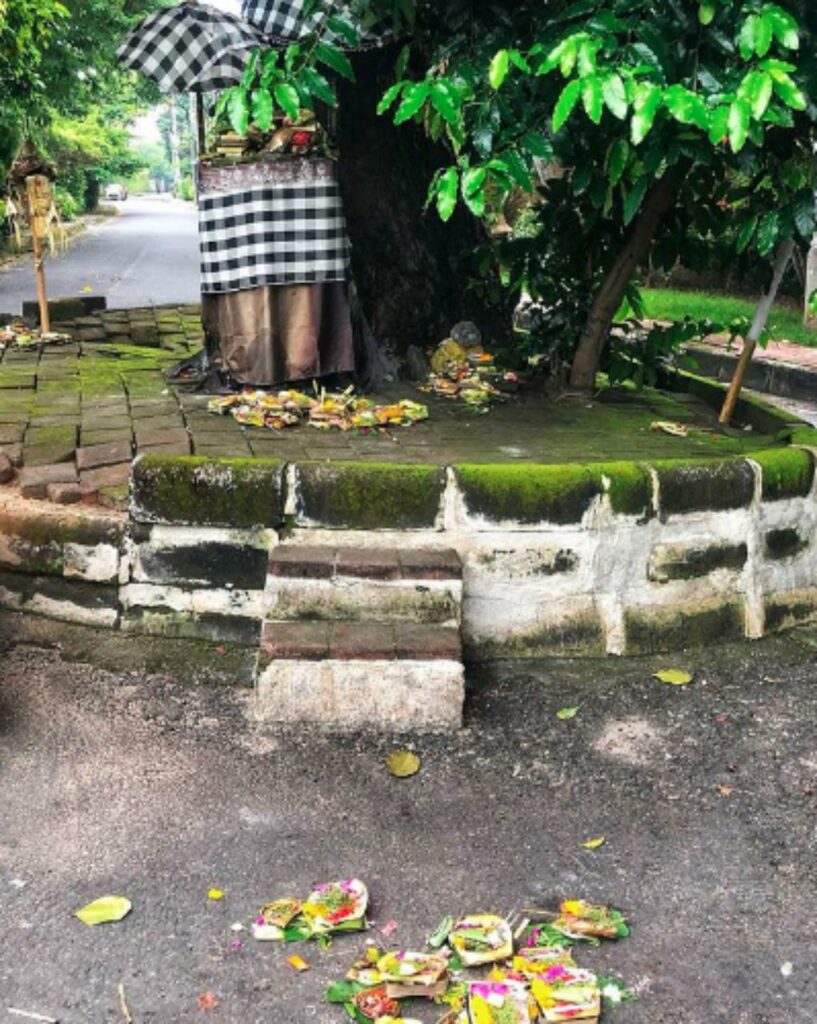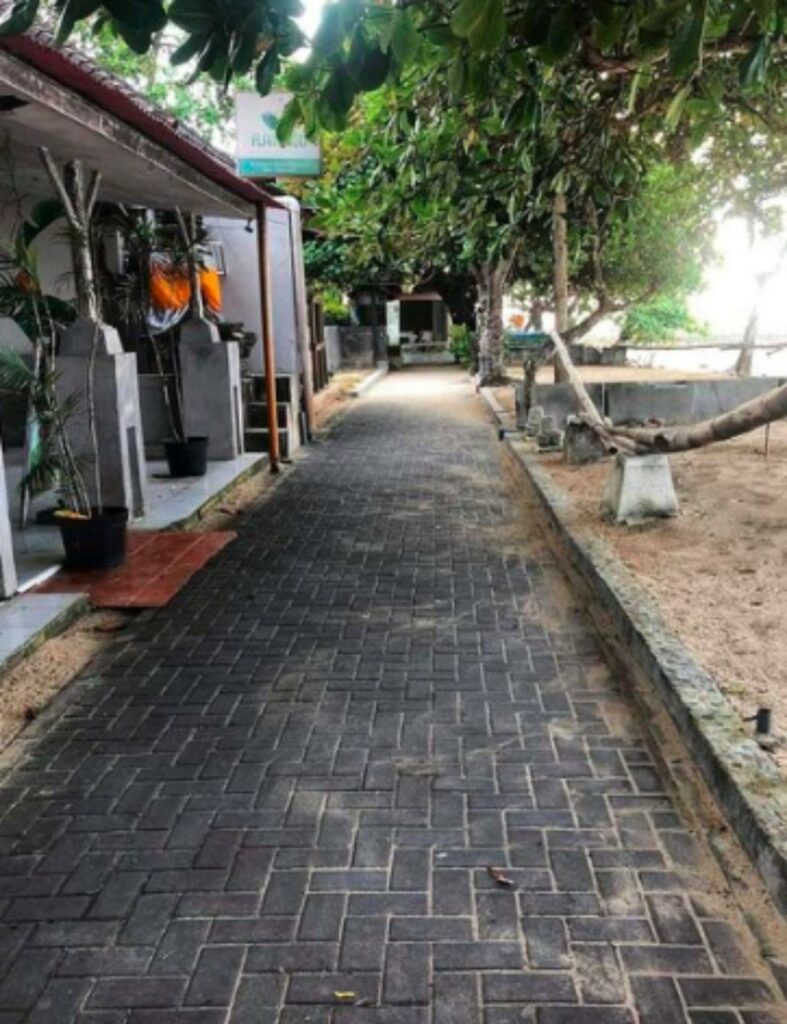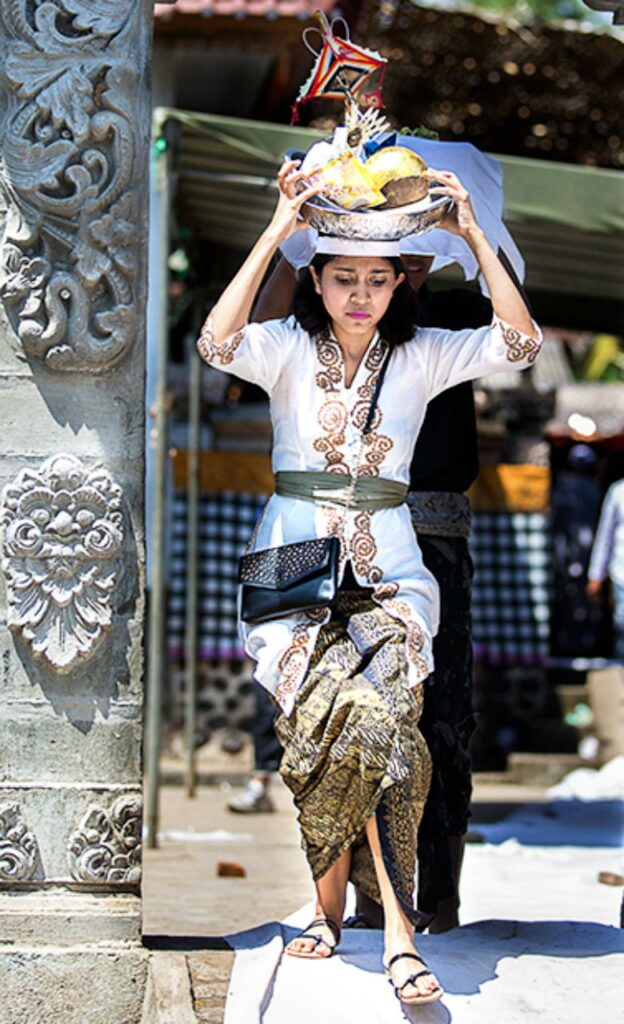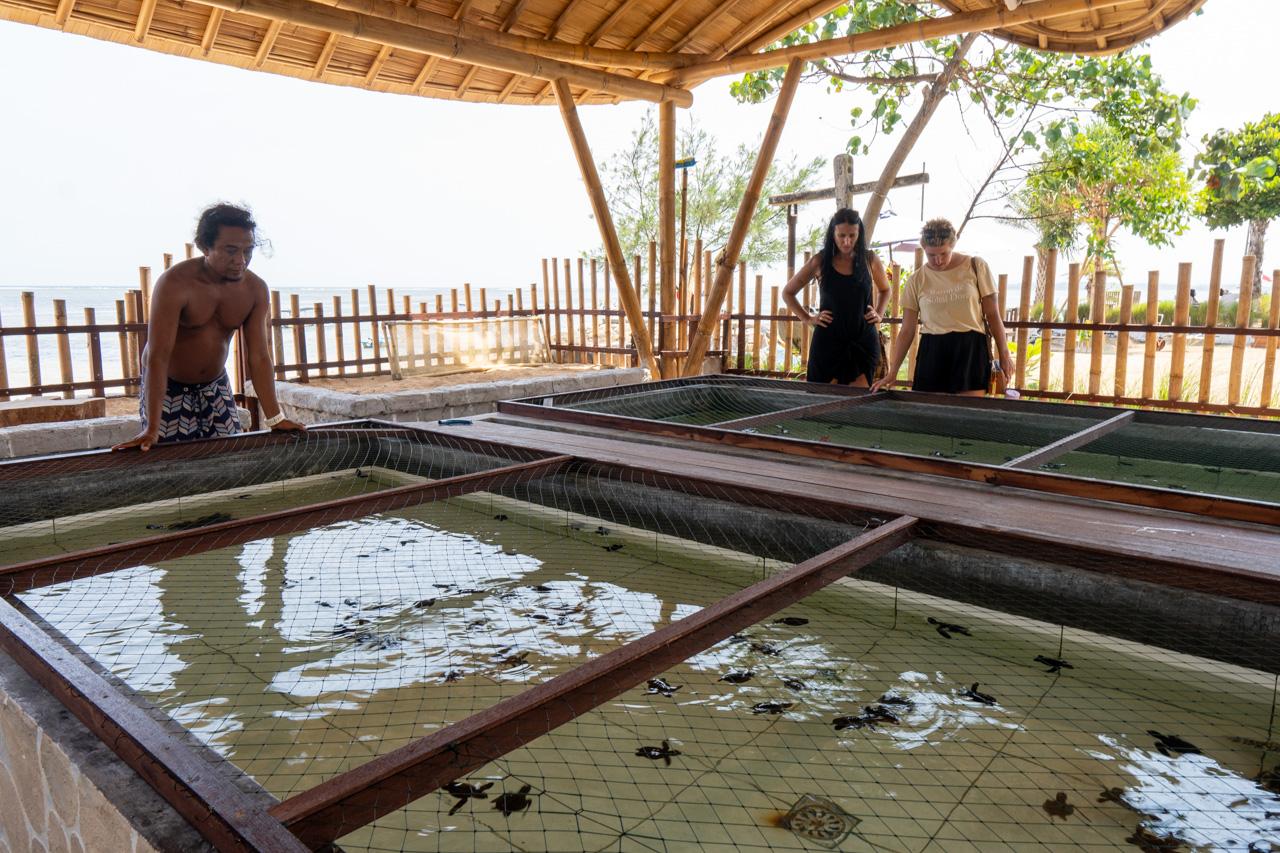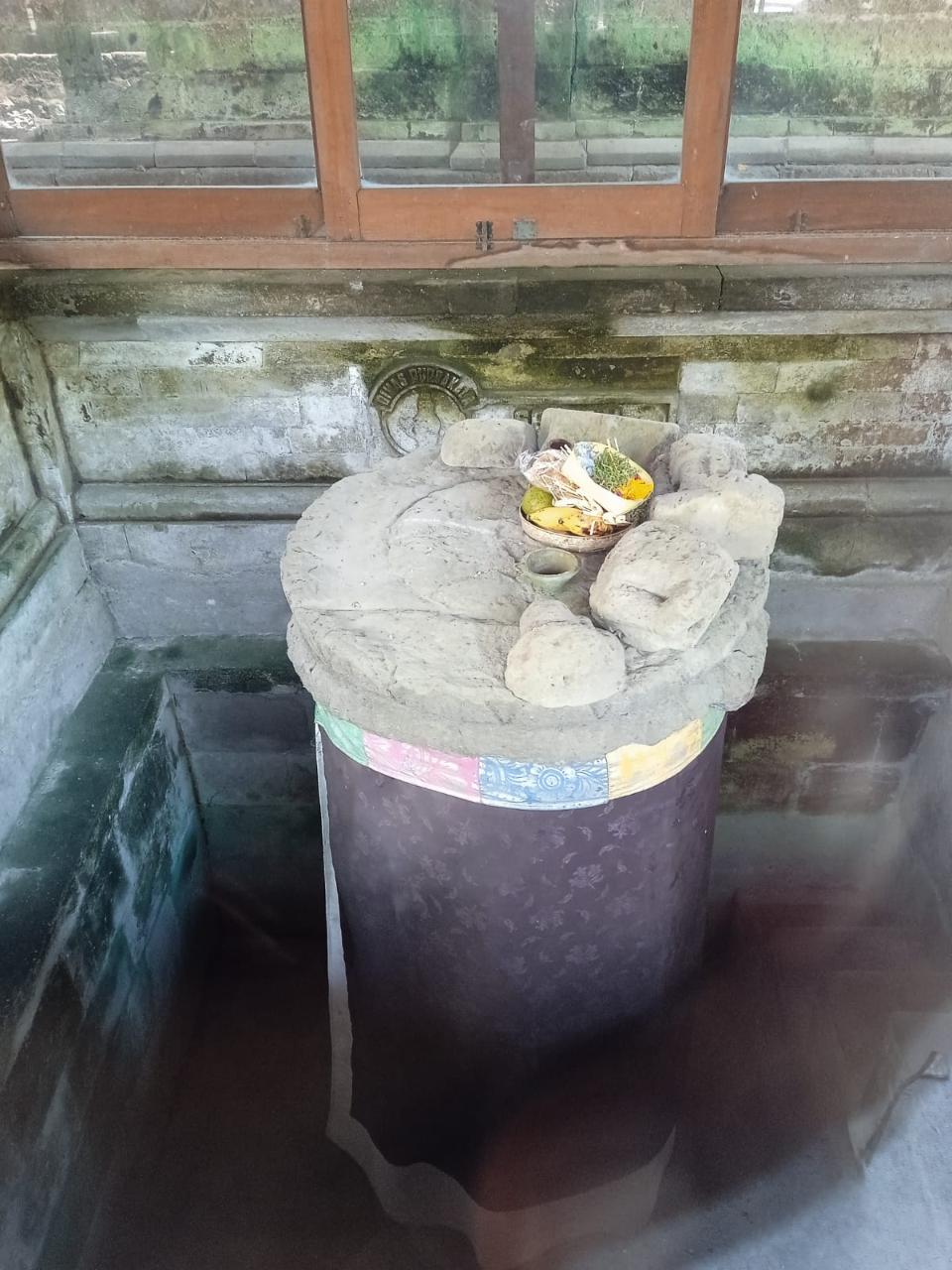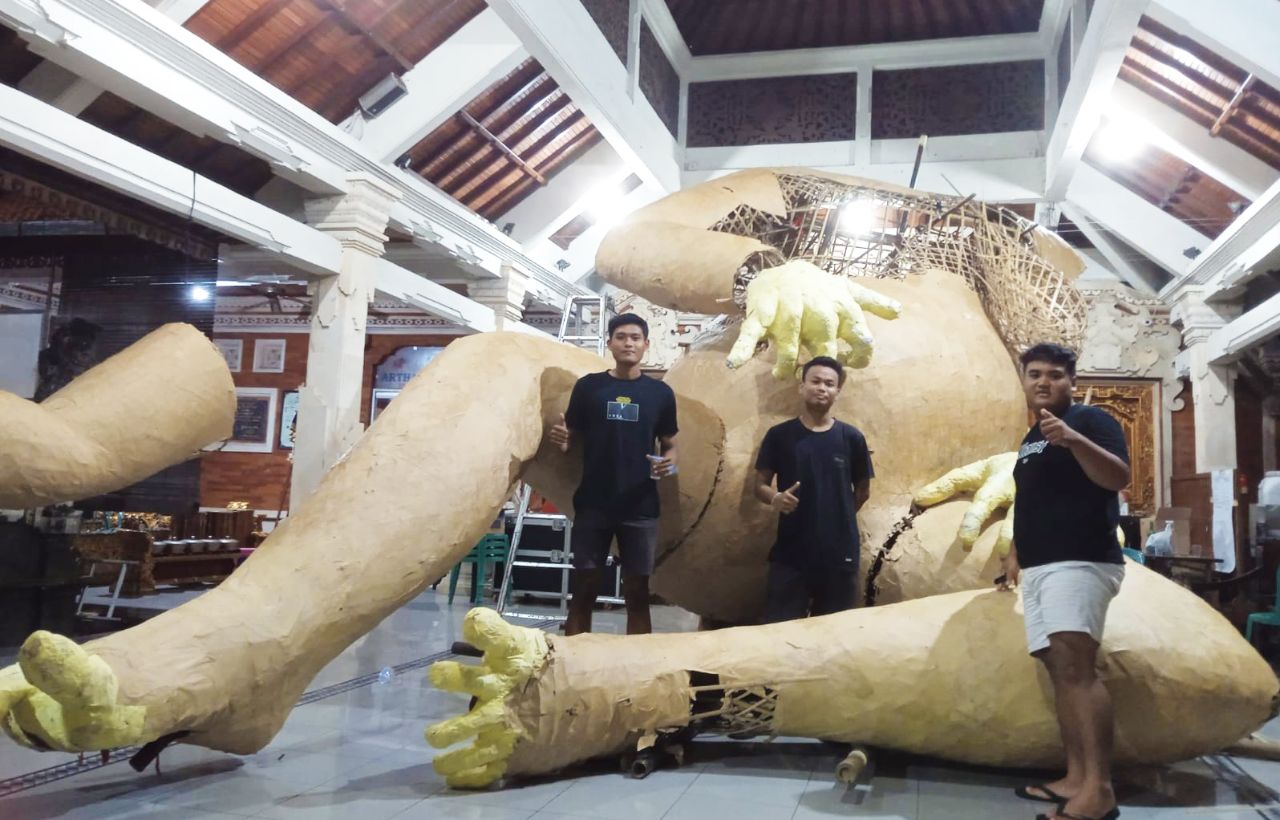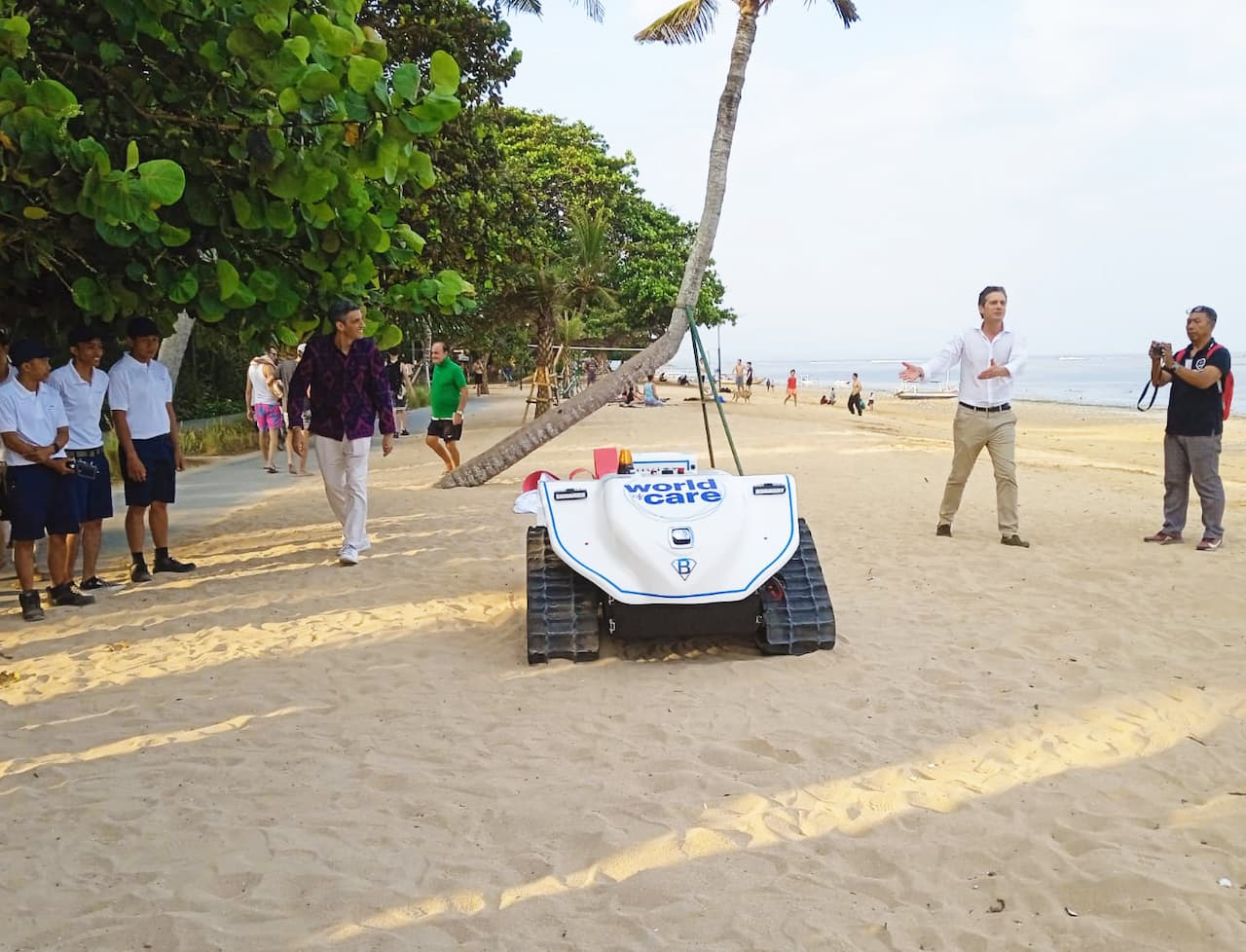Temples & Ceremony Etiquette
In a temple, it is considered rude to walk directly in front of people praying, so please be mindful of where you walk and pay attention to where the ceremony is happening.
It’s generally acceptable to take photographs, as long as you are a reasonable distance away from people. Many religious pieces and ceremony activities may catch your attention, but do not take a photo too close. And definitely do not use a flash. Be aware of your position so you don’t disturb praying people, and do not climb anywhere in the temple or near the temple just to obtain a better angle or view. Please remember that what you are watching is not a show for entertainment, it is a genuine and sacred part of local people’s daily life.
A person with a bleeding cut or wound, or a menstruating woman is not allowed to enter a temple because blood into a holy place is considered taboo.
A woman who is 7 months or more pregnant, or a woman who has just given birth within the last 6 weeks, are also banned from entering a temple. This has to do with beliefs that pregnant women have the potential to attract unwanted spirits that might cause harm to both the mother and baby.
When sitting down in a ceremony or in a temple, do not point your feet to the altar. Feet are considered as impure because they are always in contact with the ground and dirt. Men usually cross their legs, and women usually kneel in prayers.
The higher someone sits, the more important they are. This is especially true in temples or during a ceremony. Make sure you are seated at a lower level than the priest and the offerings. Priests and elders are highly revered in Bali, and it is very disrespectful to sit or stand higher than them. You can easily identify priests in temples as they usually wear all white traditional attires. If you need to pass an elder while he/she is seated, bend forward slightly with your right hand extended while walking in front of them.
When entering a temple, a shrine, or when witnessing a religious ceremony you should wear the customary sarong and sash (selendang) over your normal clothing. The main point is to wrap up your lower limbs, especially the knees. Shorts or miniskirts are inappropriate and will cause offense. And you should cover your shoulders. Tank tops, cropped tops, low cut tops, backless tops and swimwear are not only considered inappropriate, but always very disrespectful.
There is normally no entry fee in temples. However, a small donation is expected and a nice gesture from visitors. While there is no fixed amount, Rp 10K is a good guide.
Don’t honk your horn if you are stuck in traffic due to ceremonies or processions – it’s rude in any country and won’t make the traffic move any faster!
Social Etiquette
Indonesians use the right hand for eating, whereas the left hand is for toilet business. Always use your right hand to give or receive something, especially food. In a situation where you must use your left hand in giving or receiving, acknowledge your mistake by saying, “Ma’af tangan kiri” which means “Excuse me for using my left hand in doing this”.
Pointing at someone directly with your index finger is considered impolite. Indonesians point with their thumbs, with the palms turned upward and fingers curled in.
In Bali the head is considered sacred, avoid touching adults or children on the head.
Before entering someone’s house, it is customary to take off your shoes, but if you aren’t sure, it is good to check with the host if footwear should be removed.
Don’t urinate on trees even when you are in nature – in fact, please don’t urinate in public. There are beliefs that some spirits may reside on the tree, or you could be unintentionally offending a holy site. Plus, it’s just bad manners!
General guide to follow
When you see an offering on the ground while you are walking on street, do not step over it or step on it as it is to appease the spirits. This is important especially for the offerings with incense still burning. Do your best to walk around the offerings whenever you can.
Do not go out of the house or compound during the Nyepi celebration. This 24-hour day of silence starts at 6 am and finishes the next day at 6 am. Buy enough food at least a day before the celebration and turn off lights at night.
When entering a government office, avoid wearing sleeveless tops, shorts or a short skirt as this is considered impolite. Put on a shirt that covers your shoulder and a long skirt or pants that cover your knees.
Displaying outbursts of emotion or anger is considered funny for the Balinese because they place a high value on self-control and manners when in public. Having said that, laughter is an emotion that is always welcome and often contagious!
<< If you liked this article, you may also like our other articles >>
To chat with our marketing partner about your business, please contact The Travellist

